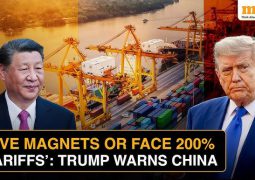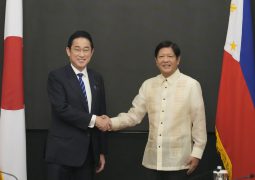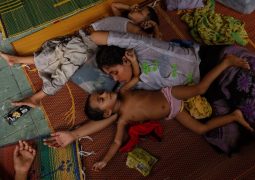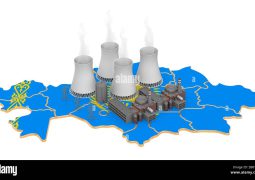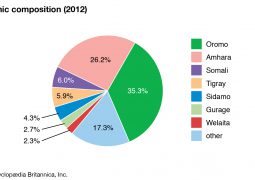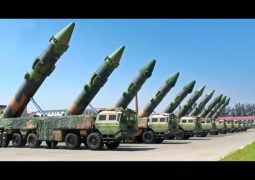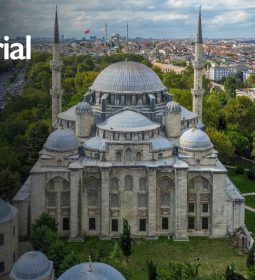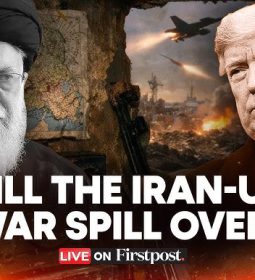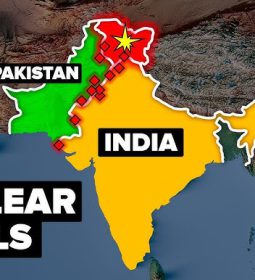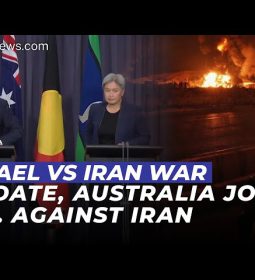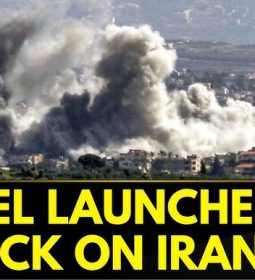U.S. Aid to Syrian Militia Strains Turkish Ties
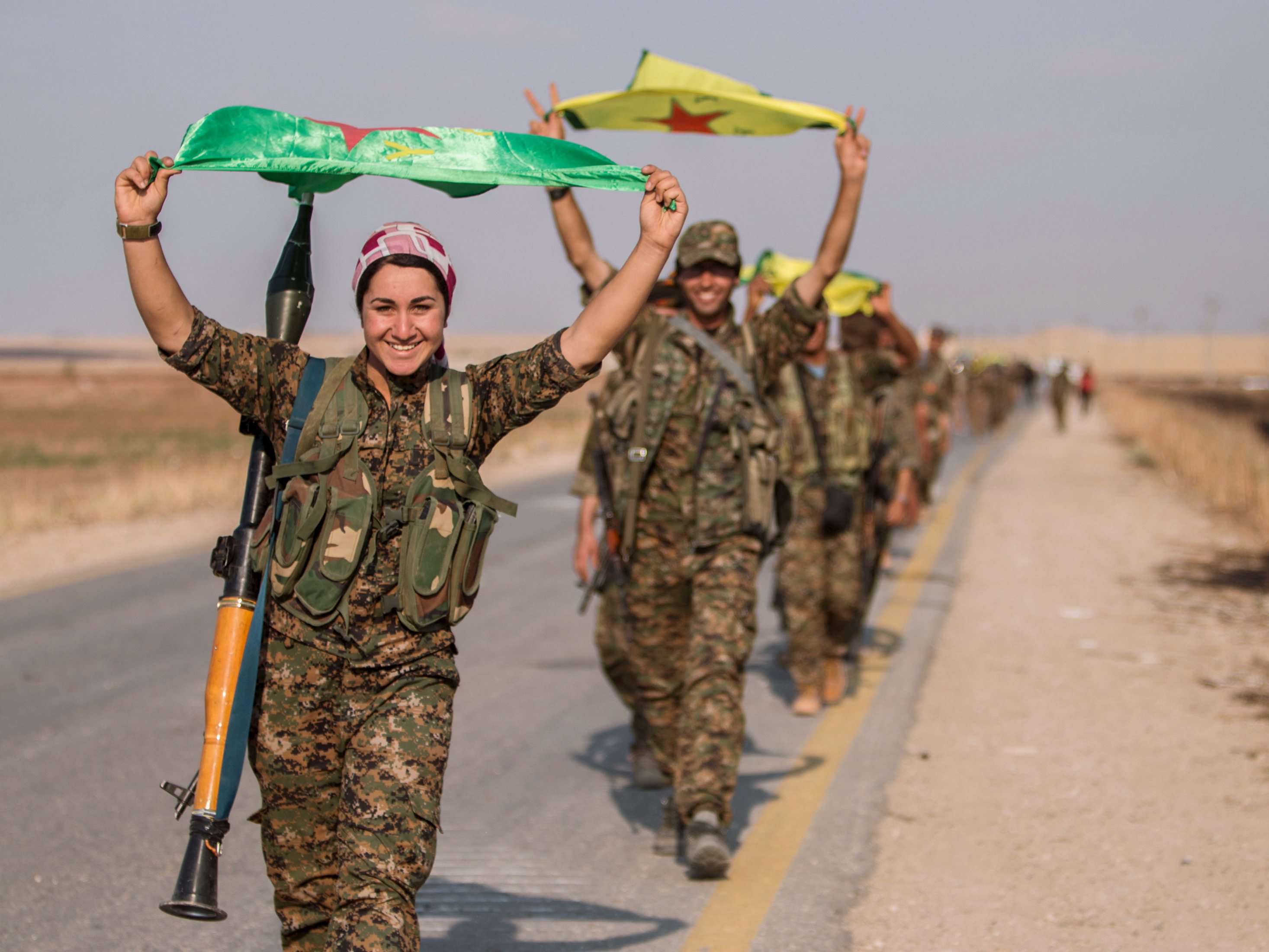
SANAA, SYRIA — A crowd of young Syrian fighters lined up behind a pickup truck to receive their equipment: an AK-47 and a load of ammunition.
The battlefield gear was their reward for completing a 20-day course led by American Special Forces in northern Syria in how to fight the Islamic State.
They will need much heavier weapons, however, if they want to evict the militants from Raqqa, the self-styled capital of the Islamic State. And facing objections from Turkey, the Trump administration has yet to say when and whether it would provide them.
This is a critical moment for the Syrian Democratic Forces, which the American military says is 50,000 strong and which it has nurtured to roll back the Islamic State, also known as ISIS and ISIL.
In a war in which the United States has sought to minimize its own military footprint, this militia has become the American military’s ally of choice in northern Syria and its best hope of taking Raqqa in the coming months.
But the budding alliance has drawn the United States deeper into the complex politics of northern Syria and prompted furious objections from Turkish officials.
The Syrian force includes 27,000 members of the Y.P.G, a Kurdish militia, and 23,000 local Arab fighters. Turkish officials insist that the Kurdish fighters are linked with the Kurdistan Workers Party, which is regarded as a terrorist group by both Turkey and the United States.
Hurtling across the sky in Osprey aircraft, three reporters were brought to this remote training area near Manbij by American commanders for a rare look at how some of new recruits are being trained.
The new recruits are paid $100 a month, a sum their commanders assert their families will continue to receive if they are killed or disabled in battle.
They ranged from an 18-year-old with a wispy beard to a 37-year-old from Qubissen, who said he had joined the militia after ISIS fighters killed his brother-in-law for smoking. A significant number were also women.
Of the 185 recruits who were undergoing marksmanship training on Friday, 100 are assigned to the looming Raqqa offensive while the remainder were members of the security force that is intended to protect the newly liberated town of Manbij.
American officers appear heartened there is an increasing number of recruits, but they also say that an assault against Raqqa would pit the lightly armed Syrian fighters against an enemy that is equipped with stolen Syrian tanks, antitank missiles and an abundant supply of car bombs.
“They are essentially a light, irregular formation with fairly light weapons,” Lt. Gen. Stephen Townsend, who commands the American-led task force that is fighting ISIS in Iraq and Syria, said of the Syrian fighters. “They are going to need additional combat power.”

To take on ISIS in its lair, American officers say the Syrian fighters will need antitank missiles, mortars, heavy machine guns and armored vehicles.
Nor is it feasible, the American officers say, to equip only Arab fighters with such weapons. American officials say that about 12,000 to 15,000 fighters will be needed to retake Raqqa, and the battle-hardened Kurds will need to be part of that fight as well.
The recent history of the campaign against ISIS certainly suggests that the Kurds have the most experience on the battlefield.
After a push by Arab fighters to take Manbij from ISIS stalled, Kurdish fighters played the critical role in wresting back control of the city in August. A top Kurdish commander, Abu Layla, was killed in the assault. Abu Amjed, the head of the Manbij Military Council, who is responsible for the defense of the city, wears a photo of the slain commander on his right arm as a memorial.
The question is whether the United States could arm Kurdish fighters without producing a violent backlash, such as a Turkish military offensive to take control of Manbij or Turkish restrictions on the use of their Incirlik Air Base by American forces.
“The Turkish government is not really crazy that we are operating with the Syrian Democratic Forces, mostly because of their Kurdish and Y.P.G. components,” General Townsend said. But the Kurdish fighters, he added, “tell us they are not a threat to Turkey, and I believe that.”
American military officials say there may be a way to ease Turkey’s concerns.
The United States could provide the Kurdish fighters with enough weapons to seize Raqqa while restricting the flow of arms and ammunition they would receive after that battle, said Gen. Joseph L. Votel, the head of the United States Central Command.
“We would be transparent with them,” General Votel said of the Turks. “We could meter things like ammunition.”
Another argument American officers make is that because the United States and Turkey are NATO allies, Washington is in a position to look after Turkey’s interests in a way other nations would not be.
“If somebody is going to have influence over the S.D.F., who would Ankara wish it to be — Russia, Iran, the regime or the United States?” General Townsend said.
Beyond that, the plan would also call for local Arab fighters to secure Raqqa after Kurdish and Arab fighters seized it.
As the Trump administration begins to grapple with the issues, tensions between Turkish forces in Syria and Syrian Kurds are running high.
Mr. Amjed, who commands the security force for Manbij, said that Turkish forces had been taking shots at his front lines. He insisted that he had ordered his fighters not to respond to avoid escalating the situation.
But as the fire from the marksmanship training resounded in the distance, Mr. Amjed made clear that his immediate worry was no longer ISIS.
“The biggest threat is Turkey,” he said.
- Previous Advertisement AFRICA U.S. Wary of Its New Neighbor in Djibouti: A Chinese Naval Base
- Next Cargo train services launched between Uzbekistan and China’s Xi’an



